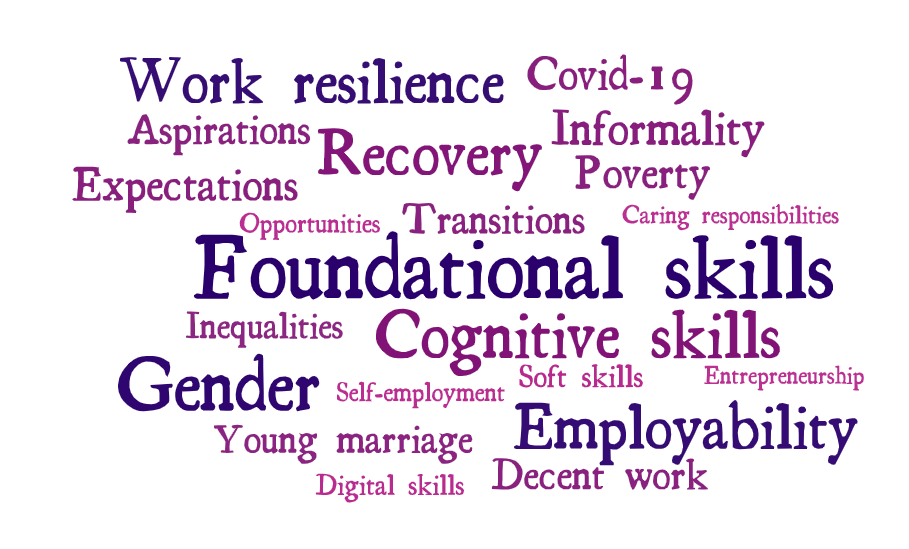Breadcrumb
Equal access to secure, decent jobs is critical to improving the lives of young people from disadvantaged backgrounds and enabling inclusive and sustainable economic growth, as set out in Sustainable Development Goal 8.
With an increasing number of Young Lives participants now part of the labour force, our longitudinal data allows us to see how early childhood poverty and widening inequalities impact their transition from school to work, across Andhra Pradesh and Telangana in India.

Our Learnings
Labour markets in Young Lives sentinal sites are diverse and complex, typically with high levels of informality and self-employment, and limited access to social security. Many of the young people in our study began their working lives during childhood, often unpaid and supporting the family farm or business. As they reach adulthood, aspirations to improve their situation in life and demand for decent work, through access to good quality, better paid and secure jobs, are much higher than for previous generations.
Over the past 20 years, Young Lives has investigated pathways into decent work and entrepreneurship, exploring different routes from school into higher education and the labour market. Young people from poor households and rural areas are less likely to secure decent work compared to those from wealthier and urban households.
Gender is also an important factor, with young men typically moving into employment at a younger age than young women across Andhra Pradesh and Telangana and there are also significant gender gaps in both employment and income. Marriage at a younger age remains a key barrier to women joining the labour force.
Economic growth and transformation, as well as global innovations in technology, are changing the labour market and the nature of work in our study sites, creating opportunities for those with employment relevant skills but also increasing the risk that many young people are being left behind.
The COVID-19 pandemic resulted in widespread job losses and shifting job patterns around the world. Evidence from our 2020 phone survey shows that initial income losses predominantly impacted young people from poor and rural backgrounds, widening inequalities and putting vulnerable households under significant economic and social stress.

